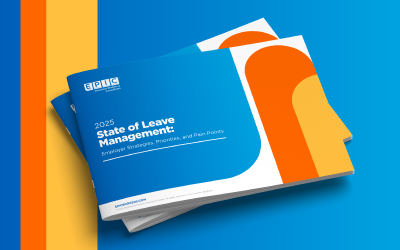Chances are that you have used Artificial Intelligence (AI) in one form or another in your personal or professional life. Whether it was searching for a provider on a carrier website or scheduling an appointment using an online provider portal, AI has made its way into our daily lives.
The field of study into AI has been around for decades, if not centuries. It wasn’t until 1965 that a form of AI program called “expert systems” was developed and eventually adopted by corporations around the world in the 1980s, making knowledge the focus of mainstream AI research. The AI industry is expected to increase sixfold between 2024 and 2030 to a staggering $1,339 billion.
In the past year, generative AI usage increased from 55% to 75% among business leaders and AI decision-makers. Generative AI focuses on creating new content by using machine learning models to understand patterns and structures in the “training data” and generate new data accordingly. If you have used a chatbot like ChatGPT or Copilot, then you’ve benefited (hopefully) from generative AI.
With this explosion in the use of AI have come mixed reactions.
Legislative Responses
During the 118th Congress, there were many bills introduced addressing AI risks, such as perpetuating discrimination and bias, giving inaccurate information, undermining privacy, and enabling disinformation. States are not waiting for federal action. Several states have proposed or passed bills related to issues such as AI algorithmic bias/discrimination and the use of AI in employment decision tools.
California’s SB 1120, passed in 2024, targets the use of AI, algorithms, or other software tools in utilization review or utilization management (UR/UM). As of January 1, 2025, a healthcare service plan must ensure that AI or other software used for UR/UM functions based on medical necessity satisfy several requirements, including:
- Provider Control. Medical necessity determinations must be made only by physicians or healthcare professionals competent to evaluate the clinical issues involved in requested healthcare services. AI and other software tools must not deny, delay, or modify healthcare services based, in whole or in part, on medical necessity.
- Individualized Decision-Making. A determination by AI or another software tool must be based on (i) an enrollee’s medical or other clinical history, (ii) Individual clinical circumstances as presented by the requesting provider, or (iii) other relevant clinical information contained in the enrollee’s medical or other clinical record. The determination may not be based solely on a group dataset.
- Discrimination and Equity. The use may not discriminate, directly or indirectly, against enrollees in violation of state or federal law. It must be applied fairly and equitably, including in accordance with any applicable regulations and guidance issued by the Department of Health and Human Services.
Advantages of AI
Early Diagnosis
AI algorithms can analyze large amounts of data at a high speed, processing X-rays, MRIs, and CT scans to identify subtle details the human eye might miss. For example, AI has matched or exceeded human radiologists’ ability to detect breast cancer from mammograms. It has also shown promise in the early detection of fractures, diabetes, and neurological conditions such as Alzheimer’s.
Personalized Treatment
By analyzing patient histories, genetic data, lifestyle factors, and other relevant datasets, AI models can develop more targeted treatment plans. This approach may lead to more effective treatments, potentially resulting in faster recovery times and fewer side effects.
Improved Administration
AI-driven automation in healthcare administrative tasks – including billing, appointment scheduling, patient record management, and inventory tracking – allows medical staff to redirect their valuable time and energy toward direct patient care.
Chronic Condition Management
Innovative devices such as implantable sensors, glucose monitors, and smart watches can collect real-time data on a patient’s vital signs and health metrics. AI algorithms can analyze this data to recognize patterns associated with worsening health conditions or detect significant deviations from a patient’s established baseline.
Disadvantages of AI
Ethics Concerns
The use of AI in healthcare raises complex questions for which there is unclear liability and accountability. Critical questions emerge: Who takes responsibility for potential mistakes? What decisions should AI be authorized to make? Moreover, how can we ensure that AI does not inadvertently perpetuate healthcare disparities or demographic biases?
Accuracy and Technological Failures
Like humans, AI can make mistakes. There remains a persistent risk of misdiagnosis or overlooking critical medical information. Additionally, technological systems are not infallible. Potential system downtimes raise essential questions about information accessibility and continuity of care. It remains crucial that human medical professionals retain the ability to intervene quickly and take manual control when necessary.
Cost Barriers
Implementing advanced AI systems can be prohibitively expensive. This financial challenge makes cutting-edge technology inaccessible for smaller hospitals and healthcare providers, particularly those serving low-income communities.
Data Privacy
As AI systems require extensive access to patient data, robust data privacy and security protocols become even more critical. The potential for unauthorized access or data misuse carries serious personal and legal ramifications.
Job Displacement
The automation of medical processes by AI naturally generates concerns about potential job elimination. A constructive approach involves exploring how healthcare professionals can work most effectively alongside AI technologies, leveraging them as collaborative tools rather than replacements.
What’s Next
Even before completing this blog, an announcement about a Chinese AI company sent ripples through stock markets, promising increasingly smarter and faster models. The competition in the AI space remains fierce and dynamic. How this technological race will ultimately transform the healthcare industry remains uncertain. We are hopeful that the potential advantages will significantly outweigh the disadvantages, ultimately leading to more affordable and effective healthcare for all.
EPIC Employee Benefits Compliance Services
For further information on this or any other topics, please contact your EPIC consulting team.
Learn About Our Employee Benefits Compliance Services
EPIC offers this material for general information only. EPIC does not intend this material to be, nor may any person receiving this information construe or rely on this material as, tax or legal advice. The matters addressed in this document and any related discussions or correspondence should be reviewed and discussed with legal counsel prior to acting or relying on these materials.
Sign up for our Compliance Matters Newsletter
You’ll receive our monthly newsletter, as well as special compliance alerts and invitations to our compliance webinars
Related Content
Products
Employee Benefits Consulting
Our dedicated benefits team is focused on delivering better outcomes – to both your benefits program and ...
Products
Compliance
We provide comprehensive consulting services and in-depth education regarding the ever-changing employee ...
Products
HR Technology Solutions
From advising startups on how to build a solid Human Resources (HR) infrastructure, to consulting with ...



